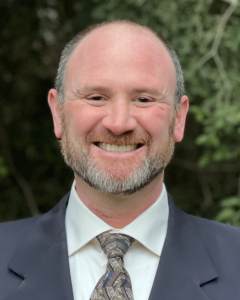Unsealed Sources, Radiopharmaceuticals, and Theranostics in Radiation Oncology Exams
By Michael Yunes, MD, ABR Associate Executive Director of Radiation Oncology
2025;18(2):7
The future of cancer care is never certain, but the pendulum appears to be swinging toward an increase in utilization of unsealed sources of various types. The ABR Radiation Oncology Trustees have unanimously voted to increase the percentage of items on the qualifying and certifying exams about unsealed sources, including radiopharmaceuticals, theranostics, and other potential therapies that may be developed over the next several years. This small change in emphasis will ensure that ABR diplomates continue to be certified in delivering these treatments in a way that is consistent with their training and expertise.
The ABR provides a single board certification for radiation oncologists. This certification includes “the use of ionizing radiation and other modalities to treat malignant and some benign diseases.” There is no distinction between the use of specific modalities such as protons, intraoperative therapy, radiopharmaceuticals, or theranostics. Additional education in specific modalities or specialization may be pursued, but it is not required to use that modality or treat specific patients.
ABR certification asserts that a diplomate has the requisite knowledge to practice independently with all trained modalities that are required by the ACGME-approved residency programs in radiation oncology.1 This includes training in the use of radioimmunotherapy [IV.C.13.h)], unsealed sources [IV.C.13.i)], total body irradiation [IV.C.13.j)], high dose rate (HDR) and low dose rate (LDR) brachytherapy [IV.C.13.l)], and particle therapy [IV.C.13.m)].
Residents and diplomates are aware that the ABR qualifying and certifying exams include questions about permanent interstitial brachytherapy for prostate cancer, HDR and LDR for gynecologic and other diseases, and proton therapy, as the exams have incorporated these concepts for many years in varying concentrations.
The role of the radiation oncologist in administering unsealed sources including radiophamaceuticals and theranostics varies dramatically depending on the clinical setting, hospital policy, professional relationships, and most significantly, local patterns of care. The ABR is agnostic regarding which specialty board certified physician delivers the treatment, provided they meet the Nuclear Regulatory Commission (NRC) Authorized User (AU) status and follow all federal, state, and hospital regulations and policies.
Our exam content committees are always evaluating the “blueprint” to confirm that the essential content remains appropriate and relevant over time. The inclusion of this additional content is not unique, but rather the next appropriate step in the annual evaluation process.
ABR volunteer item writers work closely with various societies and are responsible for ensuring the exams reflect the expectations of training programs, the ACGME, and professional societies, as well as clinical practice.
1ACGME Program Requirements for Graduate Medical Education in Radiation Oncology. Available at https://www.acgme.org/globalassets/pfassets/programrequirements/430_radiationoncology_2023.pdf. Accessed March 24, 2025.



